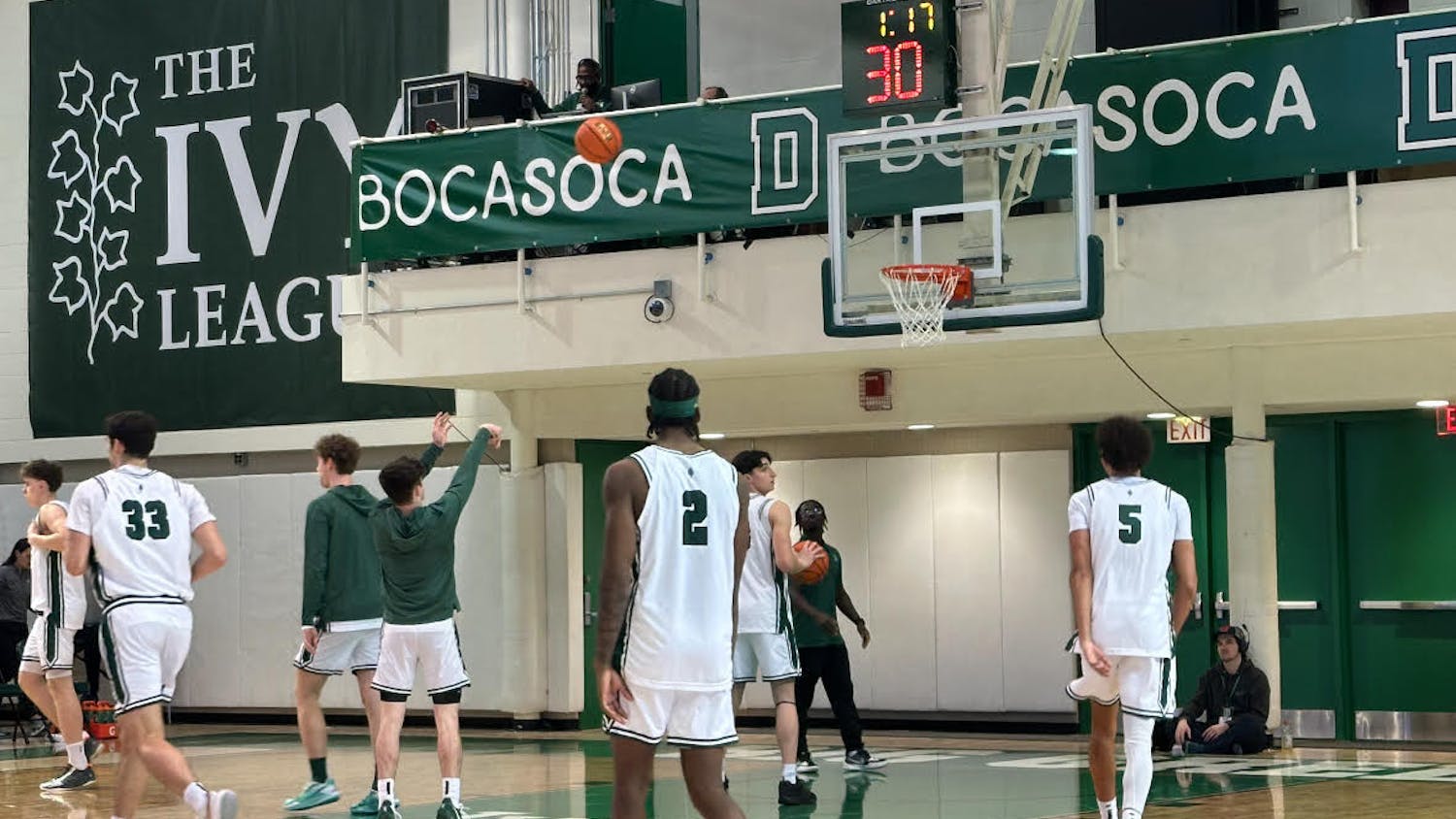I sat down with Matt Oatway '12, Tyler Maloney '12 and Hunter Dray '12 to talk about the world of heavyweight crew.
So what exactly do you guys do in the Winter?
MO: Mostly just hang out. We also do some erging and lifting. The Winter is critical to our success in the Spring. Without the strength and fitness from the Winter, we wouldn't be competitive. Recently we've been spending time in the indoor rowing tanks working on some technique, which is a nice change of pace.
TM: Yeah, a lot of aerobic and anaerobic training on the ergometer. We also do a lot of lifting.
HD: We also crush stones. Apparently smashing rocks with a sledgehammer is a good core workout.
Does it get boring at all?
MO: Very. The Winter is a real grind, especially when you listen to the same erg playlist every day for 10 weeks. We work really hard to keep the pedal down all Winter. Most people who stop rowing cite the Winter as the reason why they quit. You really can't be successful in the Spring without our Winter training.
TM: The women's team plays a lot of TikTok and Lady Gaga remixes, so it's all good.
HD: It doesn't not get boring, I'll tell you that much. Whoever said hell is repetition has never been to crew practice.
Is it tough to be called heavyweights? Does it make you self-conscious about your weight?
HD: Yeah, it does. I feel like I have no choice but to adhere to the stereotype. Kids make fun of me when I walk into stat class eating a 5-pound drumstick and it hurts, but it's part of my identity and I can't change it. I eat because I'm a heavyweight and I'm a heavyweight because I eat It's a vicious cycle.
MO: I'm actually on a diet right now, dead serious.
How would you compare the heavyweight crew team to the kids in the movie "Heavyweights?"
TM: The kids in "Heavyweights" really know how to binge eat. But most of us could probably take them at the Hop.
MO: I think Nick Foukal ['10] might have actually gone to Camp Hope after his freshman year.
HD: I'd say their total athleticism is comparable. We could definitely beat them in a race, but when it comes to ball sports it's really anybody's game. Take baseball; I guarantee that fat pitcher would have a perfect game going until I get to the plate. But if he tried to sneak that garbage mid-50s fastball by me, I'd blast that slop into the lake.
The public perception about heavyweight rowers is that you guys are kind of meatheads. How do you respond to that?
TM: I've never heard of such public perception. What the hell? We work hard at everything that we do. We all train hard, study hard and play hard. And that goes for the entire heavyweight program. Does that make us hard guys?
HD: It's garbage. When people come up to me trying to say I'm a heavyweight meathead I break out my Rubik's Cube and unleash one of those textbook 20-second solves right in their face. Game over.
MO: We're misunderstood. Just because we eat a lot, work out tons and hang out doesn't make us steaks.
Why are heavyweight boats faster than lightweight boats?
MO: Because we're much stronger. Some lightweight crews can be as fast as heavyweight crews, but for us it would be pretty embarrassing to lose to a lightweight crew. We still scrimmage the lights in practice every week before our races.
TM: Lightweight boats are made out of bricks, so there tends to be more drag.
Does that mean you guys are just tougher than lightweights?
TM: Yes.
MO: Toughness is a big part of what we do. We go to great lengths not to be soft. Soft guys are slow.
Are the actual boats a different size or are they the same?
HD: The heavyweight boats are a little bigger. More compartments for snacks and stuff.
What are some expectations for the upcoming season?
TM: We hope to go to New Haven in April and earn something special. We have made significant progress this year in our training, and we hope to surprise crews that have beat us in the past.
HD: Expect us to go down to Yale [University] and win shirts, hearts and generally continue playing chess while everyone else plays checkers.



